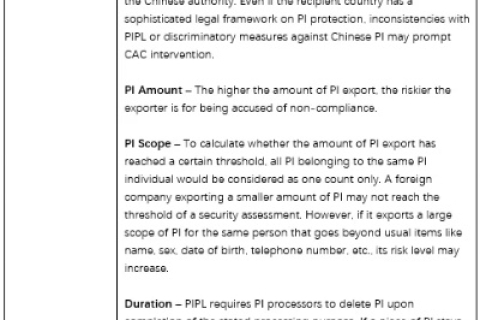In the realm of digital assets and online presence, domain names serve as the virtual addresses that direct internet users to specific websites. When a company's domain name expires and becomes available for registration, it can be tempting for other entities to register it. However, the act of registering an expired domain name, especially one that was previously owned by another company, can have significant legal implications. This article delves into the legal aspects of registering an expired domain name and whether it constitutes a violation of law.

云服之家,国内最专业的云服务器虚拟主机域名商家信息平台
Understanding Domain Expiration and Redemption Periods
When a domain name registration expires, the domain typically enters a redemption period, which can last anywhere from 30 to 60 days depending on the registrar. During this period, the previous owner can still renew the domain and regain ownership. If the renewal is not made within the redemption period, the domain becomes publicly available for registration by anyone.
Legal Grounds for Registering an Expired Domain
From a legal standpoint, there are no specific laws prohibiting the registration of an expired domain name unless it can be proven that the registration was done with malicious intent or to cause harm to the previous owner. However, there are several legal considerations to keep in mind:
- Trademark Infringement: If the expired domain name is identical or similar to a trademark owned by another company, registering it could potentially infringe on their trademark rights. This is particularly true if the new owner intends to use the domain in a way that could cause confusion among consumers or tarnish the trademark.
- Reverse Domain Hijacking (RDRP): This term refers to the practice of registering a domain with the intent to profit from it by selling it back to its rightful owner at an inflated price. While not explicitly illegal in many jurisdictions, RDRP can be considered unethical and may be subject to legal challenges if it's deemed as an attempt to exploit another party's rights.
- Cybersquatting: In some countries, such as the United States, cybersquatting is illegal and refers to registering a domain with the intent to sell it to the trademark owner for a profit. This practice is specifically prohibited by the Anti-Cybersquatting Consumer Protection Act (ACPA).
- Common Law Rights in Domain Names: Even if there is no explicit trademark infringement, a court may find that a new owner's use of the domain violates common law rights of the previous owner if it causes confusion or dilution of their brand.
Consequences of Unlawful Registration
If a domain registration is deemed unlawful due to trademark infringement or cybersquatting, the consequences can be severe:
- Legal Action: The trademark owner can file a lawsuit seeking damages, an injunction to prevent further use of the domain, and/or the transfer of the domain back to them.
- Financial Penalties: In cases of cybersquatting or trademark infringement, courts may award substantial damages to compensate for lost business opportunities, brand damage, and legal fees incurred in recovering the domain.
- Loss of Domain Rights: If a court finds that the registration was unlawful, the new owner may be required to transfer the domain back to the rightful owner or face penalties for continued unauthorized use.
Best Practices for Registering Expired Domains
To avoid potential legal issues when registering an expired domain, it's crucial to follow best practices:
- Conduct Due Diligence: Before registering an expired domain, conduct a thorough search to ensure it does not infringe on any trademarks or copyrights. Use tools like WHOIS lookup services to check the previous owner and any relevant legal claims.
- Avoid Keyword-Rich Domains: If the domain name is highly relevant to a specific industry or product, be cautious as it may be more likely to infringe on someone else's rights.
- Transparency in Registration: Maintain transparency about your intentions with regards to the domain. If you plan to sell it later, ensure that your actions are not seen as exploitative or designed solely for profit without legitimate interest in using it.
- Consult Legal Advice: Before proceeding with registration, consult with a lawyer familiar with domain disputes and intellectual property laws in your jurisdiction.
Case Studies and Legal Precedents
Several court cases have shed light on how courts approach disputes over expired domain names:
- Amazon.com vs. Amazon Associates Program: In this case, Amazon successfully argued that a third-party's use of "amazonassociates.com" constituted trademark infringement and was ordered to transfer the domain back to Amazon. This case highlights how courts take a strict view on protecting trademarks even in cases involving expired domains.
- Matal v. Mixology Management: This case involved cybersquatting and underscored how courts view such practices as illegal and harmful to legitimate businesses. The court awarded substantial damages to the plaintiff for lost business opportunities due to the defendant's actions.
Conclusion
While there may be no explicit laws prohibiting the registration of expired domain names in some jurisdictions, it's crucial to understand the potential legal implications of such actions. Registering an expired domain without proper due diligence can result in costly legal battles and damage to your reputation as a business. By following best practices and consulting with legal experts, you can minimize your risk and ensure that your actions are both legal and ethical when registering expired domains. Ultimately, transparency and respect for intellectual property rights are key to avoiding costly legal consequences down the line.

